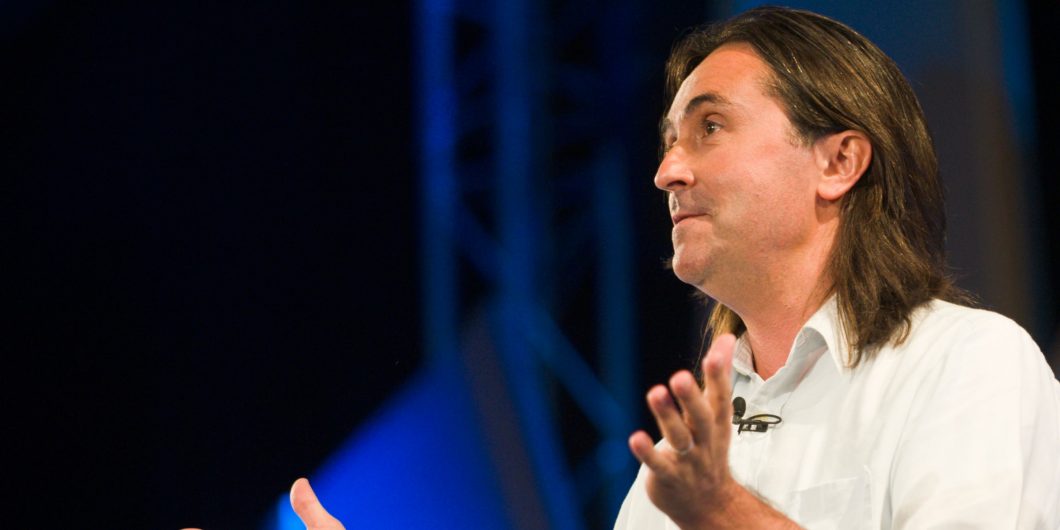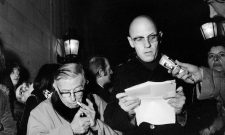If intersectionality is not defeated, Americans will learn the truth that power, not freedom, is truly irresistible.
The Story of a Failed Cancellation
I am not sure who first thought of the concept, but when I heard Neil MacGregor’s History of the World in 100 Objects series on BBC Radio 4, I was hooked. I downloaded all 100 podcasts and stumped up for the gloriously illustrated hardback.
Clearly, I wasn’t alone in enjoying this approach to artefacts and their ability to provide a window into history and culture, as numerous other “100 Objects” books have subsequently appeared. Some authors have branched out beyond objects, too—there are now multiple publications picking out a hundred related things or people and yoking them together thematically with varying degrees of success.
I couldn’t help noticing, however, that the BBC series coped better with older stuff. Archaeologists evinced a stronger feel for placing items from antiquity or prehistory in context than their modern counterparts. At times while listening, I wondered if it were even possible to treat modern history in the same way I’d been trained to consider Greece and Rome as a classics undergraduate.
Neil Oliver shows it can be done, in spades, and not just with modern history. He’s one of those who’s previously taken “100(x)” and run with it. In 2018, he published The Story of the British Isles in 100 Places, a runaway bestseller building on his successful career as a presenter of popular television programmes on archaeology and history. In The Story of the World in 100 Moments, he’s gone back to the same well.
Neil Oliver books and television programmes were always events. A gifted writer and eloquent speaker with an unusual background as a working archaeologist before he moved into broadcast journalism, it seemed he was well on the way to achieving “national treasure,” even “Commonwealth treasure” status. A fixture on the BBC, his books and shows delighted millions. National broadcasters in Australia and New Zealand then made him a fixture outside the UK.
And yet, somehow, he’s been shunted aside. This process happened in two stages. First—unlike most of Scotland’s artists (and its arts establishment)—Oliver opposed Scottish independence. That sentence alone requires some explanation, because as most Law & Liberty readers know, independence was defeated in 2014’s “IndyRef.” Scots opted to stay in the Union.
As with Brexit, both support and opposition were concentrated by occupation, geography, and social class. It was possible, for example, to be a Remain-supporting academic and not know a single Leave voter. Similarly, it was possible to be a pro-independence Scots novelist or painter and not know a single unionist. This reality landed on a figure of Oliver’s prominence like a bucket of wet cement. He spent much of his tenure as president of Scotland’s National Trust stamping out fires started by people who objected to him being there at all.
Worse was to come, at least with respect to Oliver’s refusal to adopt other people’s opinions as his own. In 2020, he began criticising HMGov’s pandemic response, both at Westminster and in Scotland’s devolved Holyrood parliament. This meant venturing outside the BBC. As was to be expected, Aunty Beeb fell in behind government messaging, quietly letting him go. He began doing weekly spots on Rupert Murdoch’s talkRADIO at the same time as me—in August 2020.
Now, I’m a natural News Corp habitué. This is partly because I’ve been writing for various of their outlets since 1993 and once won a literary prize they co-sponsor, and partly because I am—shock, horror—conservative. Helen Dale, talkRADIO commentator has a Pope is Catholic; bears defecate in woods quality to it. This is not the case with Oliver, who admitted to me when we first met that until he became embroiled in rows over Scottish independence, he didn’t really have “a politics” as such.
His estrangement from elite culture reached its apogee when, in 2021, he took a presenter’s role at upstart centre-right broadcaster GBNews. From his first show, he used his weekly platform there to lob grenades at Westminster’s coronavirus response, especially lockdowns. His argument was simplicity itself: he considered them an impermissible policy borrowing from totalitarian China.
Oliver’s shift—first to talkRADIO, then to GBNews—has roots in the development of a set of prestige opinions by the “quality” media for which he previously worked. It expects its talking heads to hold these views, presenting them to its consumers as gospel truth. Holding those opinions (in whatever area) confers status by marking one as being of the smart and good, while economising on thinking and research. Those who believe them don’t have to go to any extra effort, while they protect against public criticism because so many others are playing the same game. And coronavirus as an artefact of public debate is now home to any number of light-on-evidence, high-status opinions.
However, even at the height of his popularity, Oliver never viewed opinions as valuable assets he could or should raise as a professional shield. This is a man who undertook major scholarship on Norse civilisation and who has always accepted the importance of changing one’s mind in response to new information.
Some of the consequences of his “prestige opinions v. honest broker” conflict only became clear to me after a copy of The Story of the World in 100 Moments thudded onto my doormat. Oliver’s 2020 book, Wisdom of the Ancients, received only two notices in the national press. And despite a late September 2021 UK release, The Story of the World in 100 Moments has not been reviewed anywhere in the UK.
This isn’t cancellation, or anything like it. His books still have a formidable ability to sell themselves simply because “Neil Oliver” is on the cover. But the sidelining of one of the country’s pre-eminent popular historians for wrongthink—especially given Oliver’s publications have little to do with his media commentary—shows how a figure too big to cancel can nonetheless be siloed, a phenomenon I discussed for Law & Liberty last month with respect to Andrew Doyle’s Free Speech and Why it Matters.
If the book has an underlying thesis knitting its 100 stories together, it is probably Oliver’s claim—made in various places, not only here—that we are the children and grandchildren of “damaged generations.”
One of Oliver’s 100 Moments concerns the 1918-20 Spanish Flu pandemic, following as it did so hard on the slaughter of the Great War. If he wanted to inflict his talkRADIO or GBNews coronavirus views on the reader, that’s the place to do it. Instead, he merely observes that some of the 1918 responses “sound like tactics for coping with Covid-19 in the third decade of the twenty-first century.”
From the outset, The Story of the World in 100 Moments is clear about one thing: the selections are Oliver’s, and no-one else’s. “This is my story of the world, and these are my 100 moments. Any and every reader will likely question some choices, and that is as it should be. If I have an ambition for this book, it is that the reading of it might inspire others to think of their moments from history.”
The choice of “story” in the title, too, has significance. Oliver’s chief claim to fame in a broadcasting career going back to 2002 has always been his narrative flair, and although he is factually scrupulous, he abjures the word “history” for a reason. For years, he had “not an historian, not a doctor” in his Twitter biography, and hated it when academic historians claimed he was masquerading as one of them. “I don’t like being criticised for attempting to be something I’ve never tried to be,” he told me last week.
The Great War anchors the book: both of Oliver’s grandfathers served in it, battling through the mud and blood. It was, he says, “family business.” However, his eye for telling detail outside that terrible conflict is notable. His account of how the Queen came to dominate chess as the game moved from East to West, is a prime example. A relatively minor piece called the ferz—Persian for “adviser,” and which could move only one square diagonally—became the Queen, largely in response to the period between 1362 and 1654. That’s when eighteen women ruled as queens in thirteen different European kingdoms. “The piece that had been only the adviser was given the combined powers of a rook and a bishop and renamed.”
If the book has an underlying thesis knitting its 100 stories together, it is probably Oliver’s claim—made in various places, not only here—that we are the children and grandchildren of “damaged generations.” No-one is “over” 1914 to 1945, he argues; in some respects, that demented and sanguinary period was a second Thirty Years’ War. “To think we are beyond those years, those consequences, is a mistake,” he suggests, and he worries—because the last veterans of the first conflict are gone and those from the second are endangered—that “now and forever the Somme and Passchendaele are myths like Thermopylae, or Carthage.”
Stepping back for a moment from Scottish independence and coronavirus controversies, it’s significant, I think, that Oliver has not allowed himself to be angered or overwhelmed, despite what has been some very bad treatment. This was especially the case when he was at the National Trust, where there was a concerted attempt to “cancel” him in the modern sense. He was deluged with calumnies for his stout defence of the charity’s interests, although there was a rare moment of unity between Oliver the Unionist and Scottish Nationalists when BLM protesters vandalised Bannockburn’s memorial to Robert the Bruce.
I suspect, when it comes to heckling, Oliver takes his cue from the Queen Mother. She was once visiting a war memorial when a group of radical students began singing songs and throwing loo rolls at her. They’d hold on to one end like a streamer.
She picked one of the rolls up and followed it to the student who’d thrown it, then said, “oh, does this belong to you? Could you please take it for me?” The student did—and stopped singing. It was her absolute refusal to be flustered or shocked that caught them off guard.
Oliver continues to write his beautiful, lyrical stories, and refuses to be anything other than himself. Maybe the people who persist in throwing ideological toilet paper at him could learn something from that.
Meanwhile, for the rest of us, the best way to see Neil Oliver as he really is, is to read his books.



